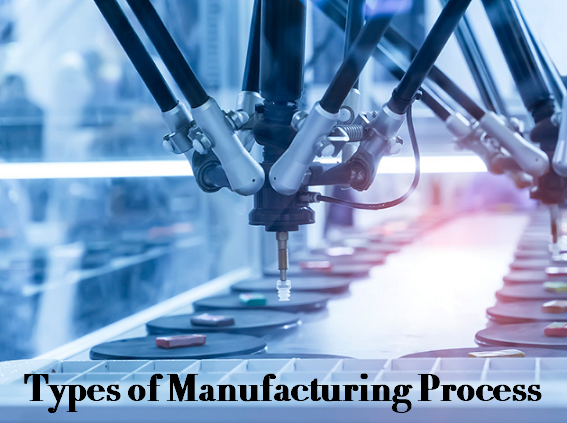Green Manufacturing: The Intelligent Factory Framework Concept
In the current rapidly evolving manufacturing landscape, the concept of intelligent production facilities has arisen as a cornerstone for a more eco-friendly future. These innovative settings leverage sophisticated technologies, data analytics, and automation to streamline production processes while reducing their environmental impact. As manufacturers work to merge sustainability into their practices, the emphasis on eco-friendly manufacturing has turned into paramount, aligning economic goals with ecological responsibility.
At the core of this transformation is the integration of sustainability into product design, essentially altering how goods are conceived and produced. By prioritizing environmentally sustainable materials, energy-efficient processes, and waste reduction strategies, smart factories are not just enhancing their operational efficiency but also redefining the standards for responsible manufacturing. This shift presents an exciting opportunity for businesses to take the lead in sustainable development as they respond to the growing consumer demand for eco-conscious products.
Eco-friendly Material Selection
The choice of materials is a key component in the path toward eco-friendly manufacturing. Sustainable materials, such as upcycled metals, biodegradable plastics, and natural textiles, minimize environmental footprint while ensuring durability and performance. product design and manufacturing are progressively sourcing materials that are both renewable but also have a lower carbon footprint, significantly cutting waste and energy consumption throughout the production process. This change in material selection supports a closed-loop economy, where products are designed with their disposal in mind, allowing for reuse.
Incorporating sustainability into product development begins with grasping the life cycle of materials. By analyzing the sourcing, processing, and disposal phases, manufacturers can pinpoint areas to improve environmental impact. For instance, using locally sourced materials reduces transportation emissions, while selecting materials that require less energy to produce can lead to decreased overall greenhouse gas emissions. Engaging in considerate material selection creates a major opportunity for companies to enhance their brand image and attract to eco-conscious consumers.
Moreover, collaboration with suppliers who prioritize sustainability is crucial for successful material selection. Partnerships can facilitate the development of new materials that meet both performance and environmental standards, promoting innovation in eco-friendly manufacturing practices. By committing to green material choices, businesses also align with global sustainability goals but also contribute to a further responsible and ethical manufacturing landscape. This approach will not only yield benefits today but also ensure resources are preserved for coming generations.
Electrical Efficiency in Production
Electrical efficiency is a crucial factor of green production, as it directly impacts both manufacturing costs and ecological footprints. By utilizing innovative technologies such as Internet of Things monitors, producers can monitor energy usage in real time, allowing for prompt changes to enhance power utilization. This preemptive strategy not only minimizes waste but also conforms with eco-friendly goals by lessening CO2 emissions associated with energy production.
Moreover, intelligent factories are increasingly utilizing green energy sources, such as photovoltaic and wind, to fuel their processes. Implementing power storage systems alongside these green resources can further improve effectiveness by guaranteeing that energy produced during high times is leveraged effectively during times of lesser output. This move towards a green power framework not only acts to cut running costs but also promotes a greener production ecosystem.

Moreover, efficient equipment and smart automation play a critical role in reducing energy consumption across production processes. By adopting innovations like eco-friendly motors and advanced automation, factories can significantly reduce their energy needs. Combining these systems with a comprehensive analysis of energy consumption throughout the production lifecycle secures that manufacturers are meeting their sustainability goals while ensuring high efficiency rates.
Cutting-edge Manufacturing Techniques
The incorporation of advanced technologies in automated factories is transforming production methods, laying the way for greater green manufacturing practices. Methods such as additive fabrication, commonly known as 3D printing, allow for exact material usage and waste reduction. This process enables creators to craft complex designs that employ only the necessary amount of material, thus cutting back on excess and advocating for the principles of sustainability. By adjusting production to satisfy demand, manufacturers can prevent overproduction, ultimately resulting in a greater effective use of resources.
An additional noteworthy method is the use of automated systems and robotics in production lines. Smart factories utilize IoT-enabled devices that monitor and optimize manufacturing processes in real-time. These systems can adjust operations based on energy consumption and environmental impact, aiding to cut the carbon footprint related with conventional manufacturing. Robotics also enhances accuracy in product design, leading to fewer errors and less material waste, as machines execute tasks with extraordinary accuracy.
Lastly, lean manufacturing principles are being adopted in combination with intelligent technologies to simplify processes and reduce material consumption. By optimizing workflows, eliminating non-value-adding activities, and encouraging a culture of continuous improvement, factories can significantly enhance their sustainability efforts. This comprehensive approach encourages creative product design that not only meets consumer needs but also aligns with environmental goals, showcasing how smart factories are at the leading edge of sustainable manufacturing.